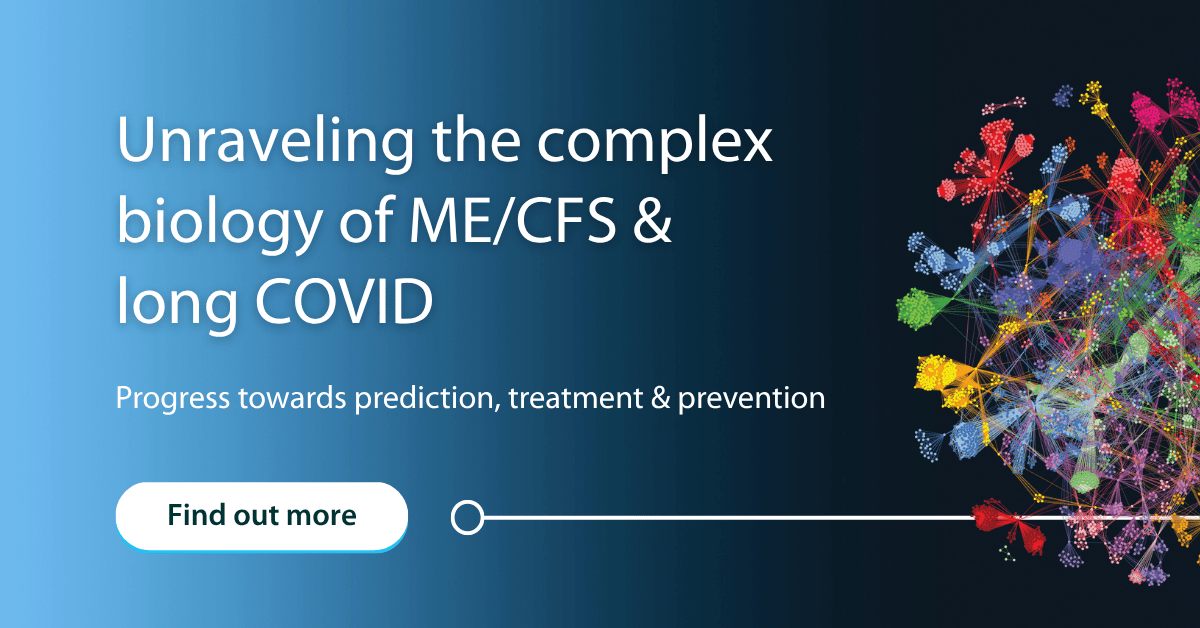Supporting Progress in ME/CFS - and the Patients Still Waiting
By PrecisionLife - commenting on the UK Government’s Delivery Plan for ME/CFS
Recognising ME/CFS as a Serious and Complex Disease
PrecisionLife welcomes the publication of the UK Government’s Delivery Plan for ME/CFS, which acknowledges the urgent need to improve support for patients and increase investment in biomedical research for this long-neglected condition. We are particularly pleased to see the recognition of ME/CFS as a serious and complex disease with wide-reaching impacts on individuals, families, and the health system.
However, as our partners at Action for ME, rightly highlight, although this plan is an important step forward, patients cannot afford to wait another decade for meaningful progress. The lived experience of those with ME/CFS must continue to shape the delivery of this strategy, and greater ambition is needed to accelerate access to accurate diagnosis, effective treatment, and targeted care.
Advancing the Science: Mechanistic Insights and Diagnostic Innovation
At PrecisionLife, we are committed to bringing cutting-edge scientific tools to tackle this challenge. Our ME/CFS and long COVID research[1],[2],[3] has identified and validated genetic and mechanistic risk factors driving these complex conditions and shown a significant overlap between their genes and mechanisms. The findings also provide new insights into why some individuals become severely affected, while others recover, and the underlying biology that contributes to such wide-ranging symptoms that can differ from one patient to another.
By applying AI-driven combinatorial analytics to patient datasets, we’ve identified distinct subgroups of ME/CFS patients linked to specific biological mechanisms that are associated with symptoms. This has laid the foundation for the development of new non-invasive, low-cost mechanostic tests that could identify patients’ underlying causes of disease, reduce diagnostic delays, and help clinicians make better treatment decisions to improve the lives of the missing millions who are living with ME/CFS and related conditions.
A Call for Action and Global Leadership
Our goal is to make precision medicine a reality for complex chronic disease patients – enabling:
- Earlier and more accurate diagnoses, with rapid triage to appropriate care pathways
- Identification of disease resilience genes that could be the target of new drug programs
- Find and clinically validate existing medicines that will benefit subgroups of ME/CFS patients
- Improved success rates in clinical trials through mechanistically stratified patient recruitment
- Optimized treatment selection for each individual based on their unique disease biology
With millions of people affected by ME/CFS globally and many more developing similar symptoms following viral infections like COVID-19, the need is urgent and the human and economic cost is profound.
The UK has an opportunity to lead the world in ME/CFS research and care. We urge the government to build on its delivery plan with sustained investment and innovation in mechanism-based precision medicine approaches that can transform outcomes for people with ME/CFS.
We remain committed to working alongside patient communities, clinicians, researchers, and policymakers to deliver better, faster answers for people living with this debilitating condition.
[1] Das, S., Taylor, K., Kozubek, J. et al. Genetic risk factors for ME/CFS identified using combinatorial analysis. J Transl Med 20, 598 (2022). https://doi.org/10.1186/s12967-022-03815-8
[2] Taylor, K., Pearson, M., Das, S. et al. Genetic risk factors for severe and fatigue dominant long COVID and commonalities with ME/CFS identified by combinatorial analysis. J Transl Med 21, 775 (2023). https://doi.org/10.1186/s12967-023-04588-4
[3] Sardell, J., Pearson, M., Chocian, K. et al. Reproducibility of genetic risk factors identified for long COVID using combinatorial analysis across US and UK patient cohorts with diverse ancestries. J Transl Med 23, 516 (2025). https://doi.org/10.1186/s12967-025-06535-x
Sign Up

